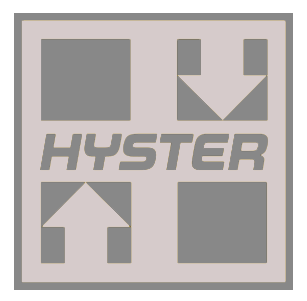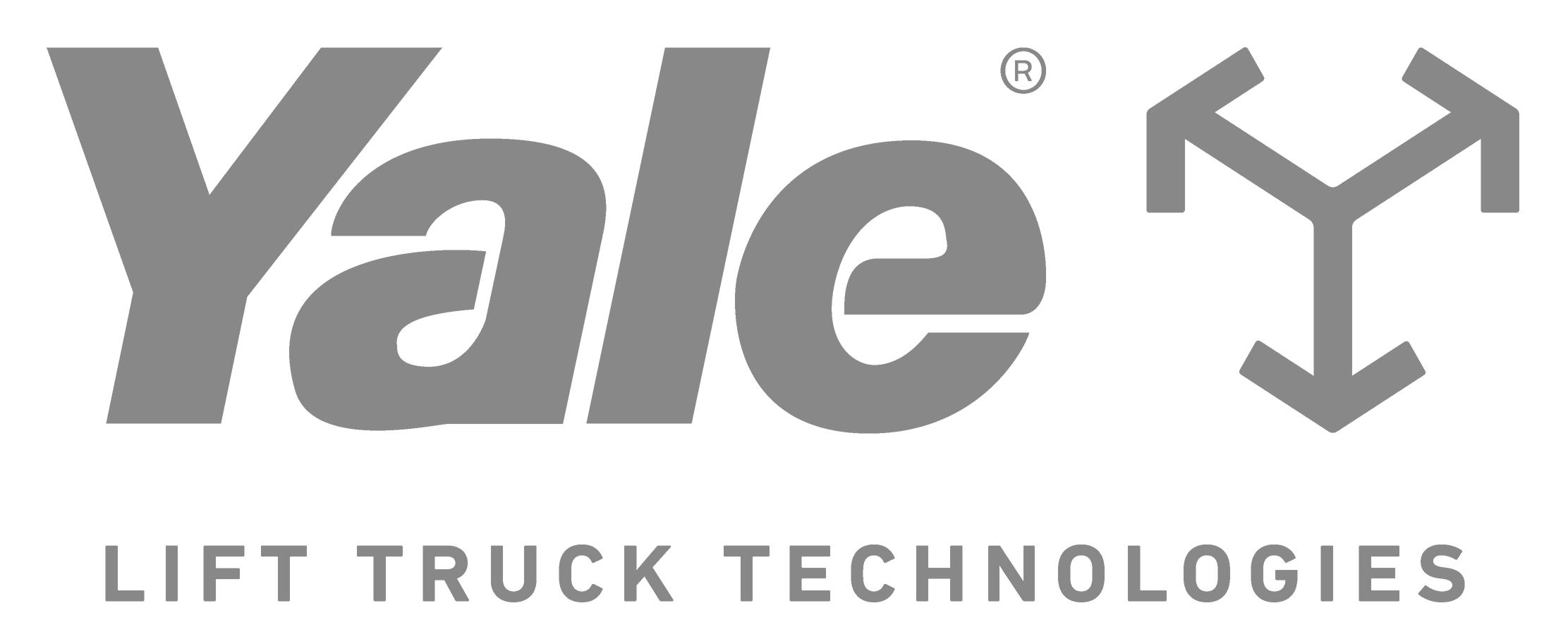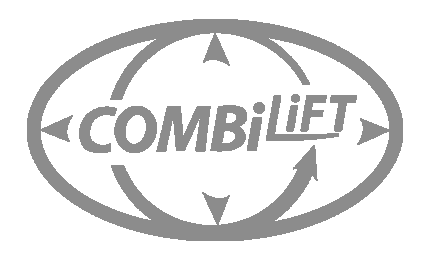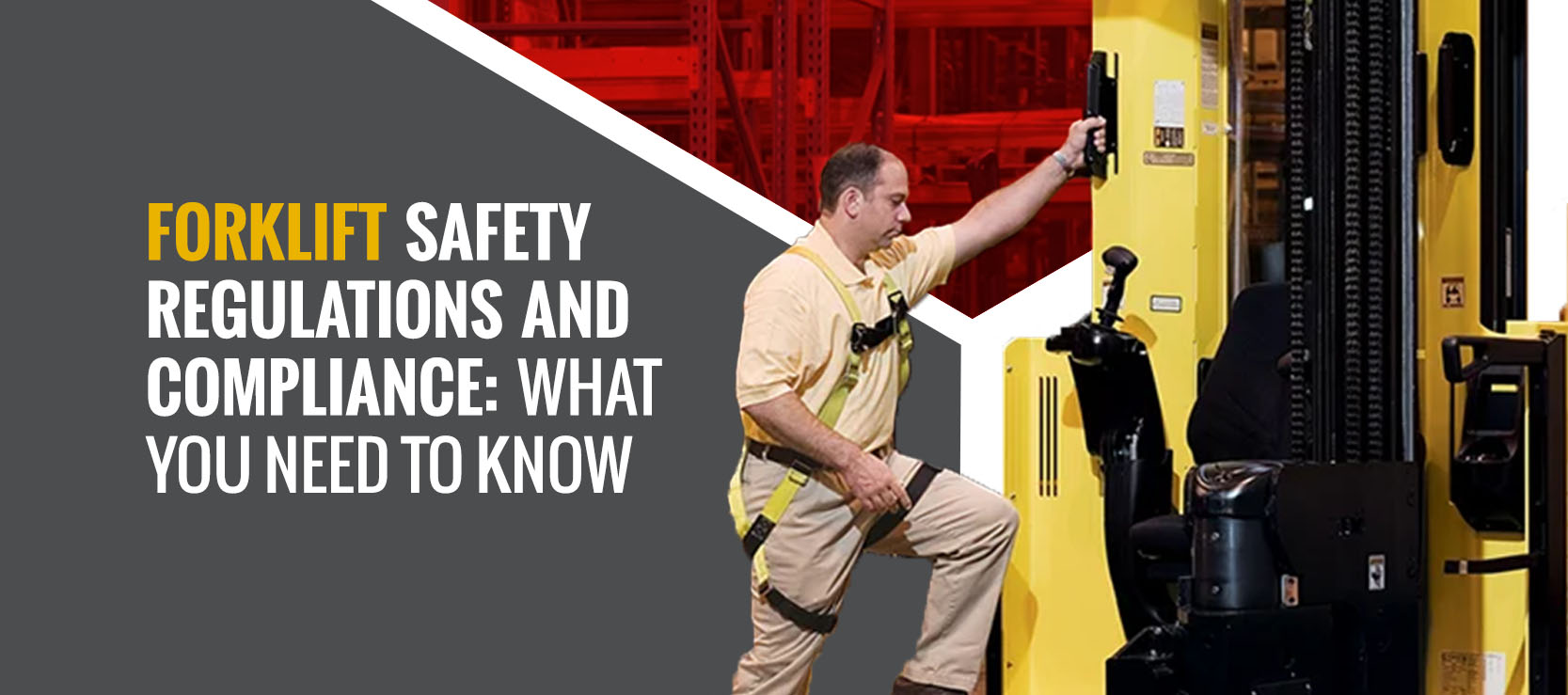
Despite forklift safety being a serious issue, some business owners don’t know how to implement it. If you own a company where your employees regularly operate heavy machinery, you need to ensure that you comply with the necessary rules.
If you don’t, your business might face severe consequences. Your operators could get injured, and you may face serious legal trouble due to noncompliance. That’s why we’ve compiled a list of crucial things you should know about forklift regulations.
What Is Forklift Safety?
Forklifts are heavy machines, which means operating them can be dangerous, especially for someone who hasn’t received proper training. That’s where safety regulations come in. These are the rules and procedures set in place to ensure everyone on or near the equipment is kept safe during operations.
Regulations help lower the risk of injury. While equipment operators need to ensure that they comply with all regulations and operate the machinery safely, the role of implementing forklift safety ultimately falls on warehouse managers and business owners, as they need to ensure that workers have the knowledge needed to perform their duties without harming anyone. With around 4.5 million people in the U.S. operating forklifts, knowing how to keep these workers safe is in employees’ and employers’ best interests.
Why Is Forklift Safety Important?
The number of forklift injuries has increased in recent years. While this could be due to more people entering the heavy machinery industry, it may also be because operators aren’t following the rules set out for them or superiors haven’t correctly educated their workers. Regardless of the cause of the spike, it’s clear that operating forklifts is dangerous, and even though mishaps may happen, you need to do what you can to minimize the risk.
Most forklift accidents lead to non-fatal injuries, but there are cases where employees die as a result of equipment-related incidents. Preventing these deaths and injuries should be a priority for anyone in charge of safety regulations.
What Safety Regulations Are in Place?
To ensure that your business is compliant and your warehouse is a safe environment, you need to be aware of a few essential safety regulations. The U.S. Occupational Safety and Health Administration (OSHA) is a federal agency that establishes standards for worker safety.
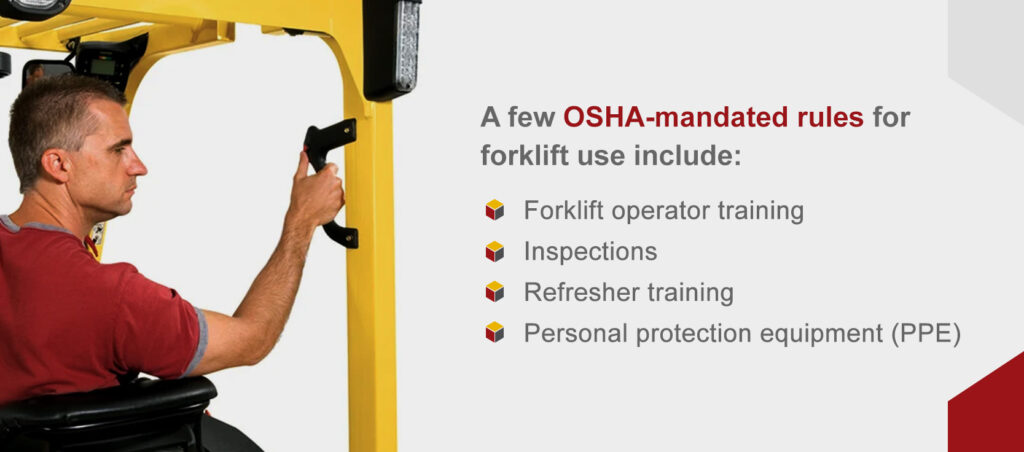
A few OSHA-mandated rules for forklift use include:
- Forklift operator training: Before being allowed on a forklift, all drivers must undergo proper OSHA forklift training and certification. It is illegal for anyone younger than 18 to use this equipment. OSHA also stipulates that it’s the employer’s responsibility to ensure that the operators are competent in safely handling heavy machinery.
- Inspections: OSHA standards, specifically 1910.178(q)(7), ensure driver safety by requiring employers to provide reliable working equipment. The standard dictates forklifts must undergo inspections before being put into service or after each shift.
- Refresher training: In the event of an accident or other safety incident, OSHA recommends that forklift operators undergo a refresher training course to ensure safe operation in the future.
- Personal protection equipment (PPE): Employees should wear hard hats and safety shoes when working on or near forklifts. High-visibility clothing can also go a long way in preventing accidents since operators can easily see fellow workers on the ground.
Some other specific OSHA requirements and regulations you may need to be aware of include:
- 1910.178(a)(3): Forklifts should be labeled to indicate that they have passed lab testing.
- 1910.178(a)(4): Modifications that affect safety should not be made without the manufacturer’s written approval.
- 1910.178(a)(7): Forklifts need to be tested and approved for fire safety purposes.
- 1910.178(f)(1): Fuel must be handled and stored according to the NFPA Flammable and Combustible Liquids Code.
What Are the Most Common Forklift Accidents?
When working with heavy equipment, there are many ways someone can get hurt. Three of the most common forklift-related incidents are:
- A forklift tipping over: Uneven loads can cause forklifts to tip over, as can an obstacle in its path. If a machine falls over, it can hurt the operator and others, especially if it lands on them.
- Heavy machinery hitting a non-driving worker: Forklift operators may accidentally hit someone on the ground while operating the equipment. In some cases, this only causes minor injuries, but it can also lead to someone being crushed by the equipment.
- Operators falling or jumping off forklifts: Operators may fall or jump off forklifts, both of which can cause severe injuries since the machines are high, and hitting the ground from a considerable distance could cause serious harm, including broken bones and concussions.
These are some common factors that cause accidents:
- Improper training
- Slippery floors
- Uneven loads
- Debris
- Poor lighting
- Mechanical problems
What Are the Requirements for Becoming a Forklift Operator?
To become a forklift operator, a person needs to receive their license. Fortunately, this process doesn’t take too long — most training facilities have courses that last between one to five days, depending on the type of certification someone is getting. The kind of license needed depends on what machine the worker will operate and what duties they will perform with it. These licenses aren’t permanent, so even trained people may need to get certified again. In some cases, employers will arrange for employees to receive training and obtain their licenses.
Here are the basic forklift operator requirements:
- Be at least 18 years old.
- Have a high school or GED qualification.
- Be in good health.
- Have a clean background.
What Types of Forklift Training Can You Receive?
It’s clear that your operators need proper training to run a successful warehouse. When selecting a training company, ensure that you choose someone who will educate operators on OSHA and ANSI standards.
A comprehensive training program will include:
- Education on how to safely handle material and machinery.
- Information on all applicable regulations.
- Testing or examinations to ensure that operators are ready for the field.
Aside from forklift operator training, you and other members of the safety management team can receive training so that you can train and evaluate employees yourself.
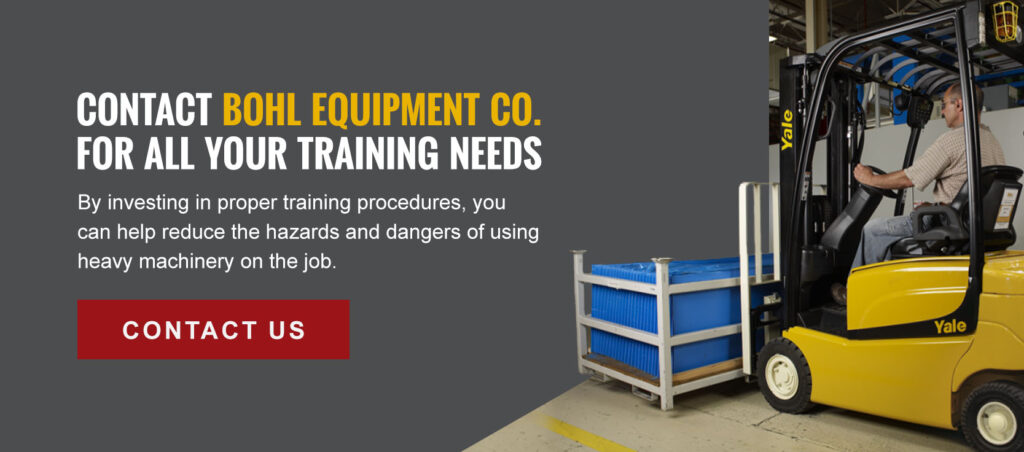
Contact Bohl Equipment Co. for All Your Training Needs
At Bohl Equipment Co., we have 100 years of experience with heavy equipment, so we understand the importance of proper training. That’s why we offer comprehensive training for both forklift operators and those who oversee them.
By investing in proper training procedures, you can help reduce the hazards and dangers of using heavy machinery on the job. If you’re ready to take the next step toward creating a safer work environment, contact us to get more details about our forklift safety training programs.

